Parker just after sunset:
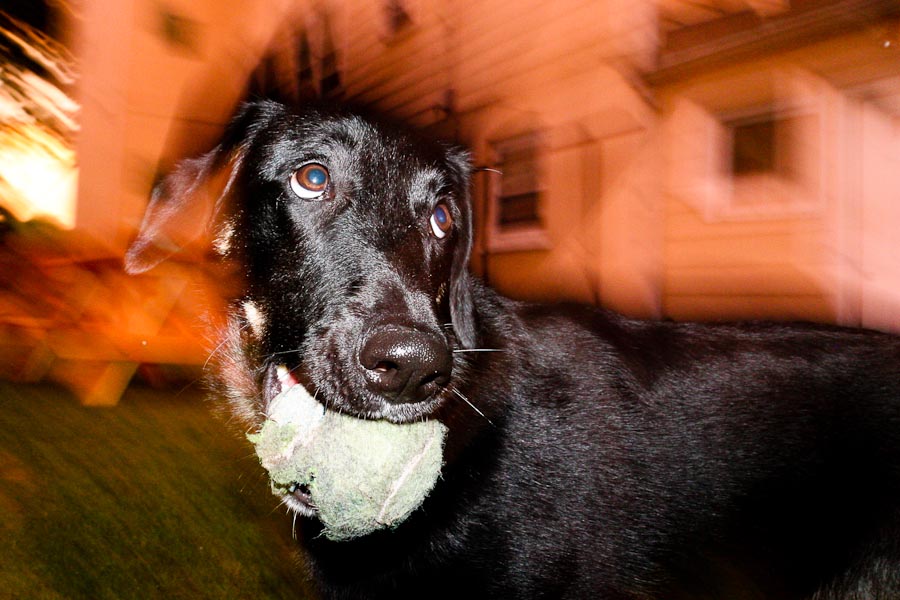
10 July 2007, Canon 20D at ISO-1600, 1/8 at f/11 with fill flash, 18mm, near here.
Sometimes The Onion has a satirical piece that's, well, almost completely true:
Visa Exposed As Massive Credit Card Scam
SAN FRANCISCO—In coordinated raids Monday at locations in Delaware, South Dakota, and California, federal agents apprehended dozens of executives at Visa Inc., a sham corporation accused of perpetrating the largest credit card scam in U.S. history.
According to indictments filed in U.S. District Court, Visa posed as a reputable lender, working through banks to peddle a variety of convincing-looking credit cards carefully designed to dupe consumers into spending far more money than they had. The criminal group would then impose a succession of escalating fees on unpaid balances, allegedly bilking some $300 billion from victims in the past year alone.
The article goes on to enumerate Visa's alleged wrongs. Only, most of them are true.
Chuckle, or nervous laughter?
Parker, New Year's Day 2008:
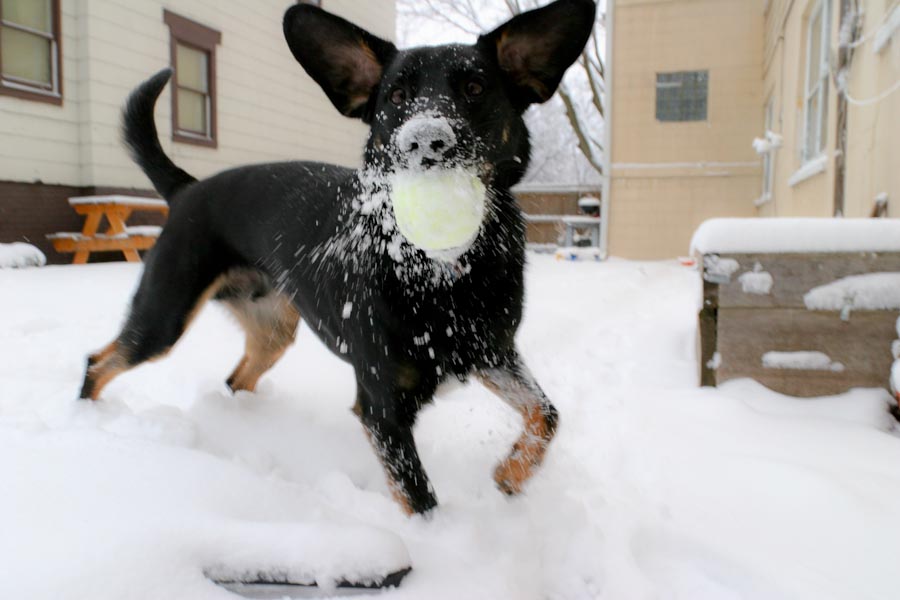
Canon 20D at ISO-400, 1/250 at f/8, 18mm. Edited from the first published version.
Three years ago today, I was in Atlanta:

Canon 20D at ISO-1600, 1/125 at f/5.6, 18mm, here.
This is actually a scan of a print, from July 1991:
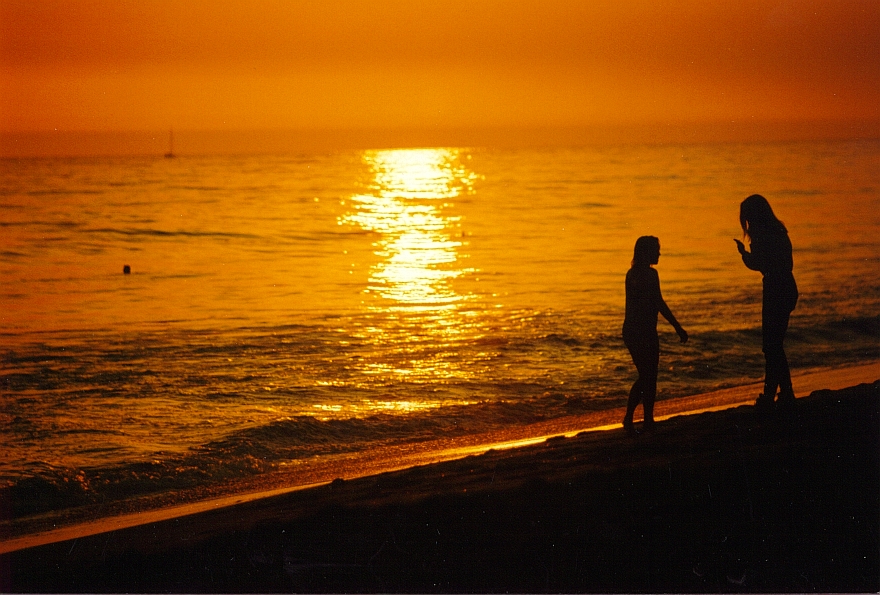
That's available light on Kodacolor 100, in Balboa Beach, Calif., about here.
Cubs pitcher Carlos Zambrano warms up before yesterday's game at Wrigley Field, Chicago:

Canon 7D at ISO-400, 1/800 at f/5.6, 171mm, exactly here.
In this shot, I corrected the color to 7500K (based on a gray card reading), pushed the contrast, and desaturated. Later today I'll have another shot of Zambrano in which I did almost the opposite.
Six months ago, at North Avenue Beach in Chicago:
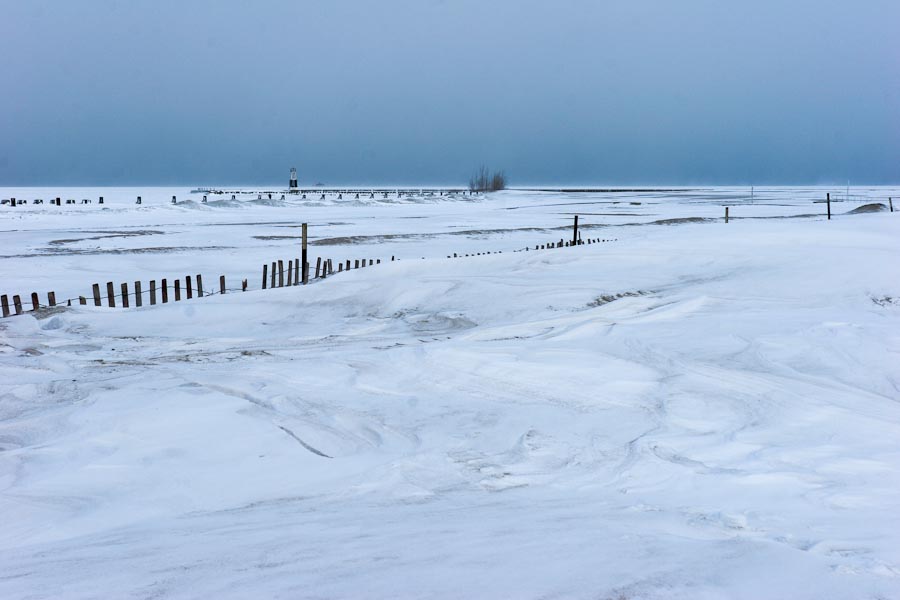
2 February 2011, Canon 20D at ISO-100, 1/250 at f/11, 27mm, near here.
I should have posted this photo a couple of days ago, when Chicago baked in near-40°C heat. Today's forecast calls for a mostly-pleasant 27°C under sunny skies.
Go back and relive those few days last February when it gets hot again.
This evening I found myself getting off the El here [1]:
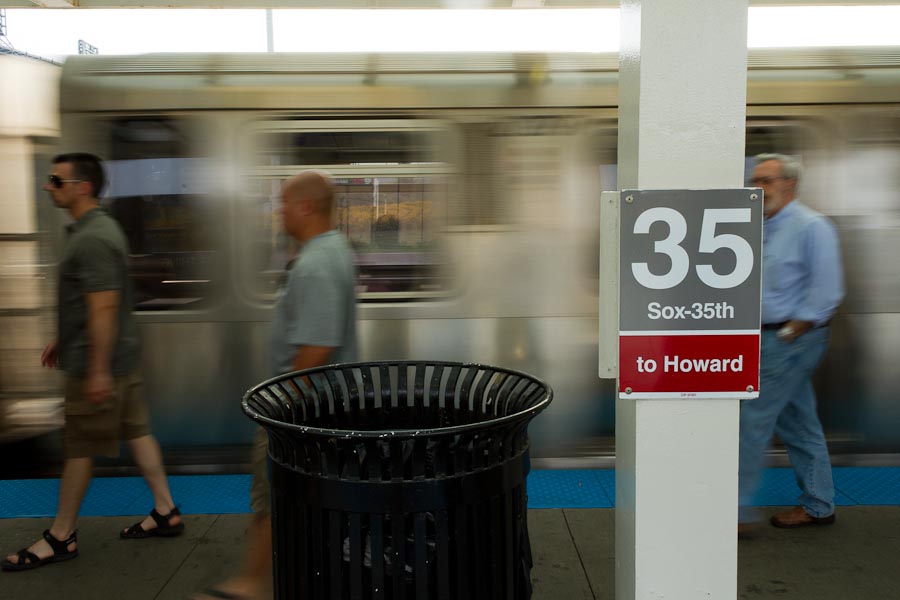
A friend, you see—an old, old friend—brought her son and his friend to Chicago this week, and they got tickets to what passes for baseball south of Madison St. Fortunately, the Yankees were in town, and even with Jeter sitting tonight out, the Sox were darned.
The home team got both their runs from this fourth-inning homer by Alexei Ramirez:
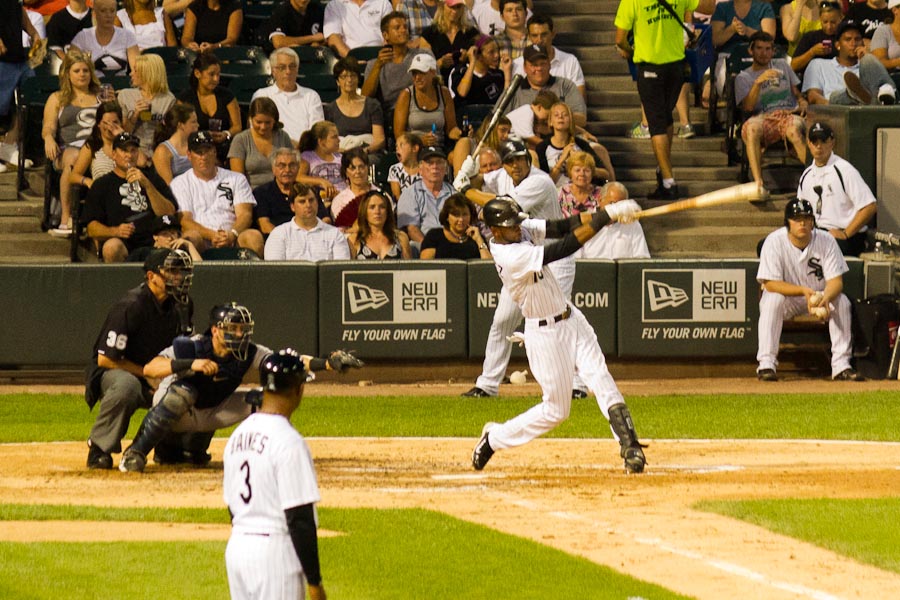
The Yankees still beat them 3-2.
The Cubs won tonight, lifting themselves back above .400 (ouch), while the Sox' back-to-back losses have them three games out of .500. As we all sweltered in the 28°C heat (and 22°C dewpoint), we wished it were October, until we realized that no one will be playing baseball in Chicago in October. The Yankees, though, they probably will still have a few games left.
[1] Yes, Wikipedia really has an entry on each El stop in Chicago.
Or, how I learned to stop worrying and love the boilerplate:
/*
* Copyright (c) 1995, 2008, Oracle and/or its affiliates. All rights reserved.
*
* Redistribution and use in source and binary forms, with or without
* modification, are permitted provided that the following conditions
* are met:
*
* - Redistributions of source code must retain the above copyright
* notice, this list of conditions and the following disclaimer.
*
* - Redistributions in binary form must reproduce the above copyright
* notice, this list of conditions and the following disclaimer in the
* documentation and/or other materials provided with the distribution.
*
* - Neither the name of Oracle or the names of its
* contributors may be used to endorse or promote products derived
* from this software without specific prior written permission.
*
* THIS SOFTWARE IS PROVIDED BY THE COPYRIGHT HOLDERS AND CONTRIBUTORS "AS
* IS" AND ANY EXPRESS OR IMPLIED WARRANTIES, INCLUDING, BUT NOT LIMITED TO,
* THE IMPLIED WARRANTIES OF MERCHANTABILITY AND FITNESS FOR A PARTICULAR
* PURPOSE ARE DISCLAIMED. IN NO EVENT SHALL THE COPYRIGHT OWNER OR
* CONTRIBUTORS BE LIABLE FOR ANY DIRECT, INDIRECT, INCIDENTAL, SPECIAL,
* EXEMPLARY, OR CONSEQUENTIAL DAMAGES (INCLUDING, BUT NOT LIMITED TO,
* PROCUREMENT OF SUBSTITUTE GOODS OR SERVICES; LOSS OF USE, DATA, OR
* PROFITS; OR BUSINESS INTERRUPTION) HOWEVER CAUSED AND ON ANY THEORY OF
* LIABILITY, WHETHER IN CONTRACT, STRICT LIABILITY, OR TORT (INCLUDING
* NEGLIGENCE OR OTHERWISE) ARISING IN ANY WAY OUT OF THE USE OF THIS
* SOFTWARE, EVEN IF ADVISED OF THE POSSIBILITY OF SUCH DAMAGE.
*/
/**
* The HelloWorldApp class implements an application that
* simply prints "Hello World!" to standard output.
*/
class HelloWorldApp {
public static void main(String[] args) {
System.out.println("Hello World!"); // Display the string.
}
}